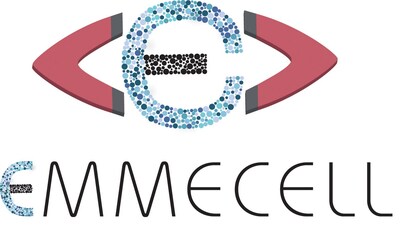Newswise — MENLO PARK, Calif., Oct. 8, 2024 -- Emmetrope Ophthalmics, LLC ("Emmecell"), a clinical-stage biotechnology company pioneering the discovery and development of cell-based therapies for the treatment of serious eye diseases, today announced the successful completion of the last patient last visit in its phase 1 extension study EMME-001, a 21-patient randomized, double-masked, US based, multi-center trial assessing the safety and efficacy of EO2002 for the treatment of corneal edema. This milestone marks a significant step forward in the development of an advanced treatment option aimed at improving visual function for patients suffering from Fuchs dystrophy, pseudophakic bullous keratopathy, and other causes of corneal edema.

EO2002 is a first-in-class, non-surgical cell therapy incorporating Emmecell's exclusive Magnetic Cell Delivery (MCD) nanoparticle platform. EO2002 was studied in EMME-001 as a treatment for corneal edema without the need for invasive and high-risk surgical procedures, such as corneal transplantation or endothelial scraping. This straightforward intracameral injection is designed as a therapeutic intervention for the approximately 90% of patients with symptomatic corneal edema who do not have disease severe enough to warrant the risks of corneal transplantation surgery.
Preliminary data from the phase 1 trial indicate improvement in best correct visual acuity, reduction in central corneal thickness, and no significant safety concerns, demonstrating the therapy's promise as a viable treatment alternative for individuals suffering with symptomatic corneal edema. Additional detailed topline results are expected to be reported in the next month for all subjects treated across three doses of EO2002.
"The prospect of being able to treat patients without surgery would be a game-changer for patients suffering with corneal edema," said Ellen Koo, MD, professor of ophthalmology at the Bascom Palmer Eye Institute, University of Miami, and an investigator in the study. "Currently, for patients with severe enough disease, we perform corneal transplant surgery, which requires a single donor to treat a single eye. Cell therapy offers the opportunity to treat hundreds of eyes from a single donor cornea, and with EO2002's non-surgical approach, we could effectively help the much larger population of patients suffering with symptomatic corneal edema without surgery."
"Completion of this trial represents a significant milestone for Emmecell, and it reflects the incredible enthusiasm from our investigators to help develop a non-surgical approach to treat corneal endothelial dysfunction," said Jeffrey L. Goldberg, MD, PhD, Emmecell co-founder, and professor and chair of ophthalmology at Stanford University. "Potential corneal endothelial cell injections could be used to treat the entire spectrum of corneal edema."
Using its proprietary MCD platform, Emmecell is able to overcome some of the biggest challenges in regenerative medicine, namely how to deliver, retain and integrate cells to the appropriate target location. In addition to its lead clinical program in corneal edema, Emmecell has two other programs in earlier-stage development to treat age-related macular degeneration and glaucoma.
For media inquiries, please contact:
Noelia Kunzevitzky, PhD
Chief Operating Officer
Emmecell
(650) 769-4232
[email protected]
www.emmecell.com